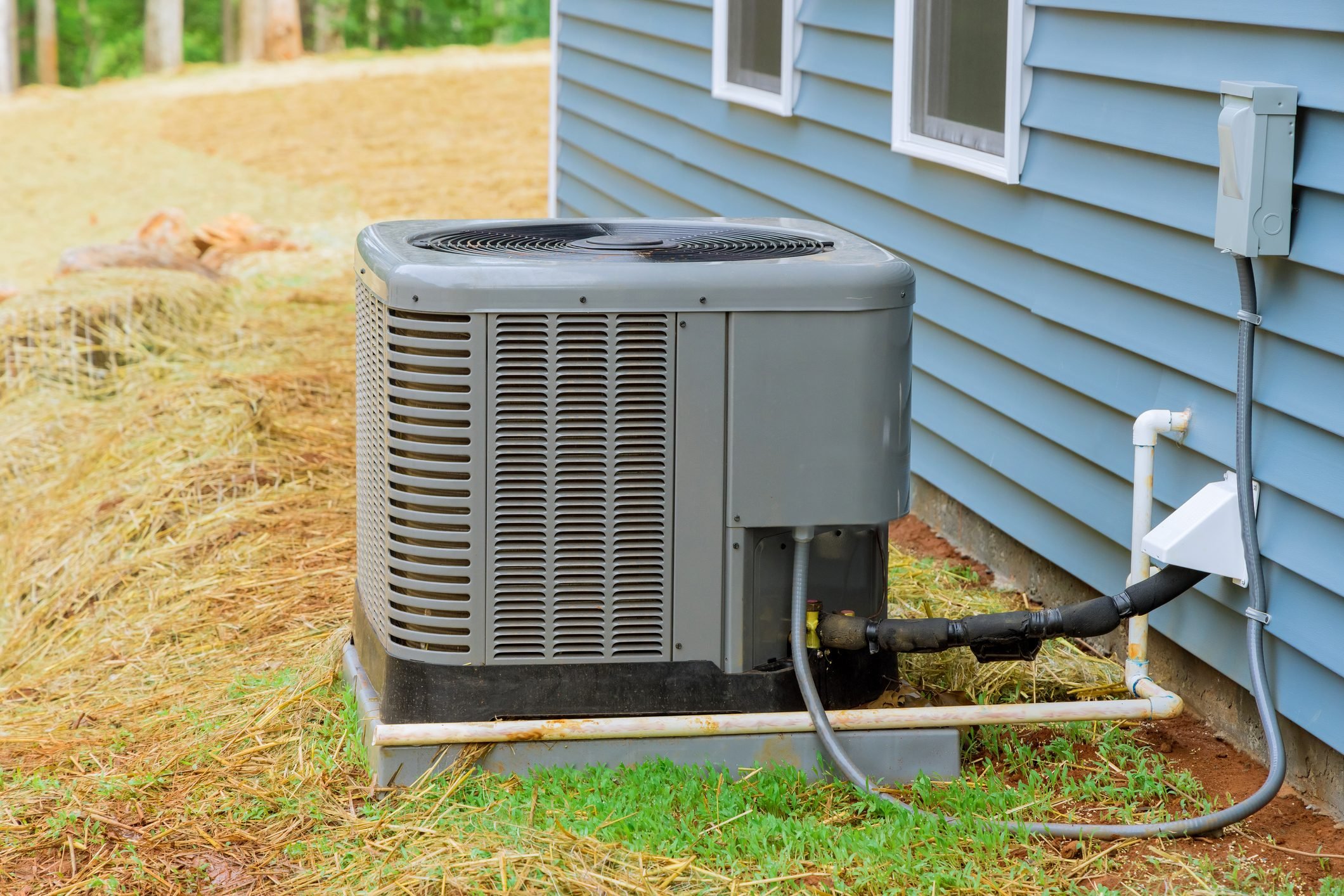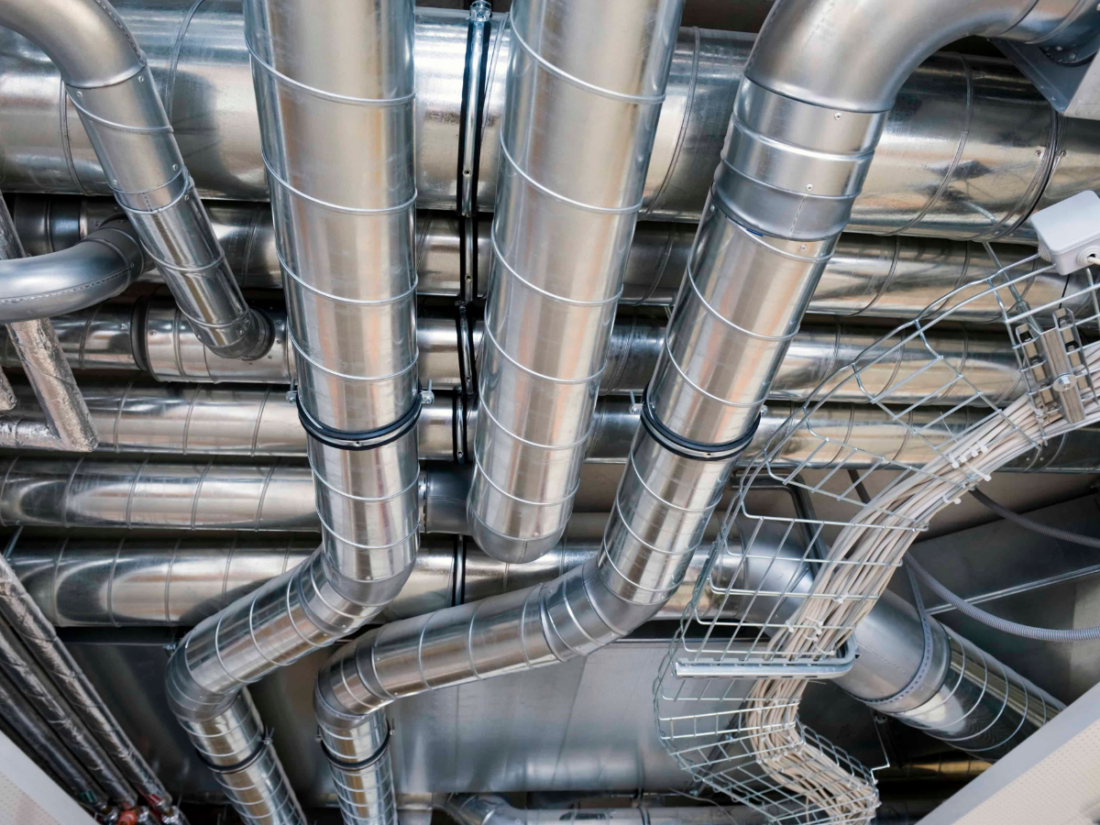Checking Out the Essential Components of an Effective HVAC System
A reliable HVAC system is built on several important parts that operate in harmony. Each component, from the thermostat to the ductwork, plays a necessary duty in maintaining convenience and power performance. Understanding these aspects is essential for optimizing performance and improving indoor air top quality. As one checks out these components, the intricate relationships between them reveal understandings right into improving total system effectiveness. What specific factors add most to this effectiveness?
The Function of the Thermostat in Cooling And Heating Effectiveness

Although typically ignored, the thermostat plays an important role in the performance of a/c systems. HVAC experts. This small device works as the primary nerve center, controling temperature setups and ensuring optimal convenience within a space. By precisely picking up the ambient temperature, the thermostat connects with the ventilation, home heating, and air conditioning units to preserve the wanted environment
A reliable thermostat lessens power usage by turning on the cooling and heating system only when needed, thus stopping too much home heating or air conditioning. Modern clever and programmable thermostats improve this efficiency even more by enabling individuals to set routines and remotely adjust setups, adjusting to day-to-day regimens.
The positioning of the thermostat is crucial; inappropriate location can lead to incorrect temperature level analyses, resulting in inefficient operation. Generally, a well-functioning thermostat not just boosts convenience but likewise contributes considerably to energy savings and the longevity of the cooling and heating system.
Comprehending the Value of Air Filters
Air filters serve a vital feature in heating and cooling systems by assuring that the air distributing within an area stays clean and healthy and balanced. These filters trap dirt, irritants, and other pollutants, avoiding them from being recirculated throughout the atmosphere. By recording these particles, air filters add to improved indoor air high quality, which can considerably profit occupants' health, particularly those with allergic reactions or respiratory problems.
Furthermore, maintaining clean air filters improves the effectiveness of heating and cooling systems. Clogged filters can limit air movement, causing the system to work harder to maintain wanted temperatures, leading to boosted energy consumption and greater energy expenses. On a regular basis replacing or cleansing filters is an essential upkeep step that can extend the lifespan of cooling and heating tools. Eventually, recognizing the value of air filters allows home owners and building supervisors to take proactive steps to guarantee a well-functioning, effective HVAC system that promotes a safe and comfy indoor environment.

The Capability of the Heater and Heat Pump
Heating systems and heatpump are vital parts of a/c systems, accountable for supplying warmth throughout cooler months. Furnaces run by heating air through combustion or electrical resistance, after that distributing it throughout the home via air ducts. They generally use quick heating and can be sustained by natural gas, electricity, or oil, depending on the system kind.
Alternatively, heatpump move warm instead than generate it. They remove heat from the outdoors air or ground, even in reduced temperature levels, and move it inside your home. HVAC experts. This twin capability permits warmth pumps to additionally provide air conditioning in warmer months, making them functional options for year-round climate control
Both systems require appropriate upkeep to ensure performance and long life. While furnaces master extreme cold, heatpump can be helpful in moderate climates. Understanding their unique capabilities help house owners in selecting one of the most suitable option for their home heating needs.
Exploring the Cooling System
The a/c unit is an important part of HVAC systems, available in various types to suit various requirements. Recognizing the effectiveness ratings of these devices is important for making notified selections regarding energy consumption and expense. This section will discover the diverse sorts of a/c and clarify just how efficiency rankings influence performance.
Types of Air Conditioners
While various elements affect the selection of cooling systems, understanding the different kinds readily available is essential for home owners and structure supervisors alike. Central air conditioners are made to cool entire homes or buildings, utilizing a network of air ducts for air flow. Home window units supply a more local option, suitable for solitary rooms or small rooms. Portable air conditioning system give versatility, permitting users to move the unit as required. Ductless mini-split systems are an additional choice, integrating the efficiency of central systems with the convenience of zoning, as they require no ductwork. Geothermal systems harness the earth's temperature for energy-efficient cooling. Each type includes distinctive benefits, making notified options vital for efficient environment control.

Efficiency Scores Described
Recognizing effectiveness rankings is essential for selecting the appropriate a/c device, as these metrics offer insight right into the system's efficiency and energy consumption. The most common score for a/c is the Seasonal Energy Performance Ratio (SEER), which determines the cooling result throughout a normal air conditioning season split by the overall electrical energy input. A greater SEER suggests far better effectiveness. Additionally, the Energy Effectiveness Proportion (EER) is made use of for measuring effectiveness under certain conditions. One more crucial metric is the Energy Celebrity certification, which indicates that a system meets stringent energy effectiveness guidelines. By evaluating these scores, customers can make educated selections that not just maximize comfort however likewise reduce energy expenses and environmental impact.
The Importance of Ductwork and Airflow
Efficient ductwork design and airflow management play vital roles in the general effectiveness and efficiency of cooling and heating systems. Proper ductwork assurances that conditioned air is dispersed evenly throughout an area, lessening temperature level changes and boosting convenience. Properly designed ducts reduce resistance to air flow, lowering the work on heating and cooling tools and eventually decreasing power usage.
Airflow management involves purposefully placing vents and signs up to improve the circulation of air. This stops common issues such as hot or cold places, which can take place when air movement is blocked or inadequately well balanced. Additionally, the appropriate air duct products and insulation can even more improve performance by decreasing heat loss or gain throughout air transportation.
A reliable ductwork system not just adds to energy cost savings yet can additionally lengthen the lifespan of HVAC devices by minimizing unnecessary stress (HVAC experts). Consequently, understanding the value of ductwork and air flow is crucial for attaining peak heating and cooling system performance
Normal Upkeep Practices to Enhance Performance
Regular upkeep methods are vital for guaranteeing peak efficiency of a/c systems. These methods here consist of regular evaluations, cleaning, and needed repair work to maintain the system running efficiently. Frequently altering air filters is important, as clogged up filters can block air movement and minimize efficiency. Furthermore, service technicians should check and tidy evaporator and condenser coils to avoid overheating and energy wastage.
Yearly specialist examinations are also suggested, as trained specialists can determine potential concerns prior to they intensify. Lubricating relocating components lessens wear and tear, adding to a much longer life-span for the system. Moreover, making sure that the thermostat operates properly aids in keeping perfect temperature level control.

Regularly Asked Inquiries
How Frequently Should I Change My Thermostat?
Thermostats need to usually be changed every 5 to 10 years, relying on usage and modern technology improvements. Normal checks are recommended to ensure peak performance, particularly if experiencing inconsistent temperature level control or increased energy expenses.
What Dimension Air Filter Is Finest for My Heating And Cooling System?
The very best dimension air filter for a HVAC system differs by system style. Usually, it's essential to speak with the proprietor's guidebook or inspect the existing filter dimensions to ensure peak performance and air quality.
Can I Set Up a Heatpump Myself?
Setting up a warm pump individually is feasible for knowledgeable people, but it needs knowledge of electrical systems and local codes. Hiring a specialist is suggested to guarantee correct installation and perfect system efficiency.
Just how Do I Know if My Ductwork Is Efficient?
To establish ductwork effectiveness, one ought to look for leaks, measure air movement at vents, check insulation top quality, and assess temperature level differences between supply and return air ducts. Professional analyses can provide detailed understandings right into overall efficiency.
What Are Signs My HVAC Needs Immediate Upkeep?
Indications that a cooling and heating system needs immediate upkeep include uncommon sounds, inconsistent temperatures, increased energy bills, unpleasant odors, and frequent cycling. Resolving these issues without delay can protect against additional damage and guarantee optimal system efficiency.
Air filters offer an essential feature in Cooling and heating systems by guaranteeing that the air distributing within a space stays tidy and healthy and balanced. Furthermore, maintaining clean air filters improves the efficiency of HVAC systems. Ductless mini-split systems are another option, integrating the efficiency of main systems with the convenience of zoning, as they require no ductwork. Recognizing efficiency rankings is crucial for picking the ideal air conditioning unit, as these metrics give understanding into the system's efficiency and power consumption. The finest size air filter for a HVAC system differs by device style.